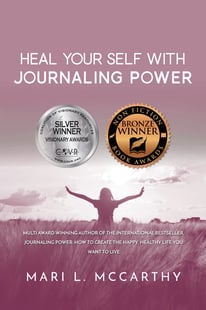To succeed in your industry and reach your professional goals, you need to have some degree of confidence. Confidence can help you in many ways and put you into new scenarios that will elevate your career, but you need to get there first. You can build confidence in many ways, from returning to school to networking with others, but if you really want a solid stepping stone, start a career journal. This is a place where you can write all of your accomplishments and get material for future positions.
Here’s more about the importance of confidence for professionals and entrepreneurs, how to
start the foundation of your career journal, and prompts to get you started.
Why You Need the Confidence To Succeed
Before you go to the store and buy your journal, know why it’s essential to build up your confidence and how it can help your career. For starters, when you’re confident about what you do and eager to volunteer for new assignments, you have a great chance of moving up the corporate ladder and reaching your career goals.
Even if those opportunities don’t come up right away, your confidence can also lead you to others who can help you because you won’t be afraid to talk to someone. Expanding your network is great for increasing your reach; you never know who you’ll meet and what they’ll offer. While you can meet people at networking events, if you have confidence, you can also spark conversations with people anywhere around the office, and you never know where that might lead.
In addition to these benefits, building confidence will also help you to:
- Take more risks, which can have more rewards.
- Tackle complex issues.
- Feel more confident sharing your ideas.
Journaling Can Improve Your Self-Esteem at Work
Starting a career journal can also improve your self-esteem and make you feel happier and more confident in your career and your everyday life. Writing things down is a helpful way to relieve stress and anxiety daily. Many people sit down with their journal at the end of the day and write down the negative feelings they have, so they can go to sleep in peace. You can also have a section of your journal where you build up your self-confidence by writing about the positive things that people have said about you in and outside of work.
Create a section where you recognize your skills and document all the things that make you an important part of your organization. Write down your technical skills and your soft skills, like your ability to show up on time and communicate with management. If you’re ever feeling down, read these positive attributes out loud and you’ll feel better. Plus, you can find the areas where you need to improve and work on those attributes to continue to elevate your skill set.
It’s a place to write down your desires in life, so you can look at them later and reach your objectives step-by-step. This can be especially true if you want to start your own business.
You may not realize that entrepreneurship may be good for your mental health.
One reason is that it creates a goal you need to reach. The desire to build your brand and provide for your family motivates you to work towards that goal. When you reach it, you’re filled with confidence. However, entrepreneurship or corporate work isn’t always easy, so there can be a lot of stress and potential burnout. Your career journal can be instrumental in helping you focus on growth and less on anxiety.
A Career Journal Can Help Your Career
Start writing in a career journal now, and you’ll be amazed at the insights you’ll create on those pages. You can add multiple sections to your journal and use it for various purposes. One section could be used to log good ideas you come up with as you go about your days. Bring the journal to work, and whenever inspiration hits, write it down. Then, when you’re in an interview situation, or your boss comes looking for ideas, you have some at your fingertips.
As you contine journaling, document the quality of your work life. This could help you in multiple ways. You may notice that the quality improves as your confidence improves and you put yourself out there for new roles. Or you may note that the quality isn’t improving — benefits, pay, and culture don’t get better. That’s when you should feel confident to reach out and seek improvements, whether with your current employer or a new one.
You can also write down the valuable information that you learned from the mentors you’ve met. Organize your journal so that you can turn to a specific page if you come to a scenario where you have a chance to solve a problem or impress a higher-up and use it to your advantage.
While a journal helps you keep on top of future goals, it can also be instrumental for notating the list of current tasks you need to accomplish. In addition to staying on top of these projects and finishing them in a timely fashion, you’re also documenting the vital work you did at this job. You can use that information later on when you interview for a dream position. It’s much easier to look back into your notes to gain inspiration for your interview than to try to think back and remember everything.
Use the Journal to Build Yourself Up
Your journal needs to remain private and should be for your eyes only. You can use it for your own personal thoughts and document how you’re feeling. Use it as a place to vent your frustrations when a project doesn’t go right or a manager gives you feedback that you may not agree with. Then, after you’ve had time to reflect on the experience, look back and see how you can use those lessons in your new position to impress your new managers.
Put a special section in your journal that’s dedicated to rebuilding your self-esteem when you’re feeling low. If you want to jot down your feelings but don’t know where to start, consider beginning with a journal prompt, which is essentially asking yourself a question. You could start with, “What are three things I appreciate most about myself?” or, “When was the last time I surprised myself in a good way?” Then, start writing. The answers will just come out, and you can use them for your current predicament and build on that confidence as you advance in your career.
These are the basic ideas that you should implement into your career journal. Every journal will be different, and it should be specific to you. Work on yourself through those pages, and you’ll be amazed at where your career can go.
 Author bio: Miles Oliver is an independent writer with a background in business and passion for psychology, news, and simply helping people live happy and fulfilled lives. He has lived and traveled all over the United States and continues to expand his awareness and experiences. When he is not writing, he is most likely mountain biking or kicking back with a cup of tea.
Author bio: Miles Oliver is an independent writer with a background in business and passion for psychology, news, and simply helping people live happy and fulfilled lives. He has lived and traveled all over the United States and continues to expand his awareness and experiences. When he is not writing, he is most likely mountain biking or kicking back with a cup of tea.
Journaling Power Revolution Series






Leave Comment